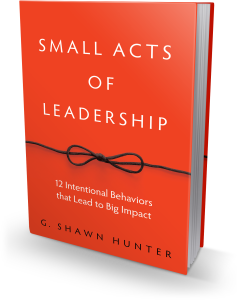Yes, Posttraumatic Growth is a Real Thing
In some ways suffering ceases to be suffering at the moment it finds a meaning.
—Viktor Frankl
Most people say they don’t like adversity. If you ask, many of us would say that this Covid19 situation, right now, sucks. And the last thing we want to hear is, “You’ll grow from this.” Please. Don’t start with that.
Yet history is littered with stories of triumph and growth through adversity. Van Gogh was tortured with madness. Beethoven went deaf. Roosevelt suffered from polio and paralysis. Victor Frankl was imprisoned in Auschwitz, his family murdered by Nazis. More recently I was reminded of Michael J. Fox, who has advanced Parkinson’s Disease, and yet now his foundation has become the largest donor to Parkinson’s research – over $650 million thus far. Frida Kahlo, who suffered through polio, a near death accident, and chronic unrelenting pain, and yet found solace in her art. Our world religions of Hindu, Buddhism, Islam, and Christianity all have stories of the transformative power of suffering.
But what’s the path to enlightenment through crisis and trauma? Is it as simple as waking up one day in the middle of a crisis and just creating art and meaning? Well no, it’s not that simple. But there is a path we can follow.
Richard Tedeschi and Lawrence Calhoun have done years of research on how people deal with traumatic events and crises in their lives, and how some people successfully grow and thrive, while others merely cope, and some fold under the weight of psychic trauma.
They define “posttraumatic growth” as an increased appreciation for life, more meaningful relationships with family, friends and community, positive shifting of priorities, and a more meaningful spiritual life. They also point out that growth isn’t a binary choice, it’s a journey. And like any journey there are ups and downs.
Common initial reactions to cancer, death, job loss, divorce, or similar seismic events include profound sadness, yearning for the deceased, longing for a life denied, loss of self identity, guilt, anger, irritability and distraction. In a minority of cases, significant trauma and life crisis can trigger serious mental instability.
Spiritual and emotional growth isn’t a de facto result of crisis, of course. It’s the result of intentional choices about how we respond to traumatic events. The way we frame the next sequence of choices and personal narrative matters a great deal in how we can emerge from trauma stronger and more resilient.
Acknowledge your point of departure.
We all have our own starting point prior to a traumatic event, our own personal status quo. When a crisis strikes it disrupts our personal narrative, it challenges our belief system about what is normal, what is fair, what is real and consistent in our world. When crisis strikes it creates own emotional distress, curtails our goals, and interrupts our normal trajectory. It’s important to acknowledge that you won’t go on your vacation to Belize, or see your son’s graduation ceremony from high school. Mourn that loss, but don’t dwell on it.
Examine your self-talk.
In Tedeschi and Calhoun’s model, our next immediate phase is rumination. We muse internally about the event, and the way in which we talk to ourselves matters a great deal. Do we curse the gods, and tell ourselves we deserve it? Or do we chalk it up to random misfortune, and uncaring powers beyond our control. Often we internalize events in the form of keeping a journal, or praying, or meditating. It’s important to avoid blame. Blame simply exacerbates feelings of being a victim.
Be aware of how you share your story to others.
Once we have built our own personal narrative of the event, we try these stories out on others. We test these narratives with our partners, our friends, and family. We lean on our sociocultural muses. We revisit our trusted voices in the news, in social media, to reinforce our emerging storyline. The language you use with others is contagious. If you focus on complaints and what you have lost, you will reinforce the same feelings in others. Focus on the positive.
In these early phases of rumination, self-talk, and then sharing these developing narratives with others, it’s critically important to use words that emphasis self-compassion (“it’s not my fault”), it’s temporal (“this isn’t going to last forever”), and to emphasize what you can do to contribute to the emotional stability of those around you (“I think I’ll help John with his homework tonight”).
Build meaning and purpose through giving.
In study after study, helping others and contributing to your community goes much farther in building purpose and meaning than merely the pursuit of happiness. Even the simple act of expressing gratitude to someone is itself and act of giving because you celebrating someone else and lifting them up.
If you’re interested in tracking your own traumatic growth progress through this strange dystopian moment in time, Tedeschi and Calhoun have created this simple scorecard to help us examine our growth.
Our company Mindscaling is giving away this course we created on Resiliency with Jen Shirkani. We hope you are safe, healthy and sane in this strange time. And we hope this will help.
- ____________________________________________________

Before the pandemic, in a more free world, our son and I bicycled across America with two other dads and their teenagers. We published a new book about it called Chasing Dawn. I co-authored the book with my cycling companion, the artist, photographer, and wonderful human jon holloway. If you need a good escape at the moment, grab a copy. I’ll sign it and send it to your doorstep.
